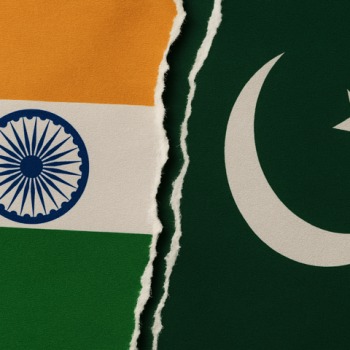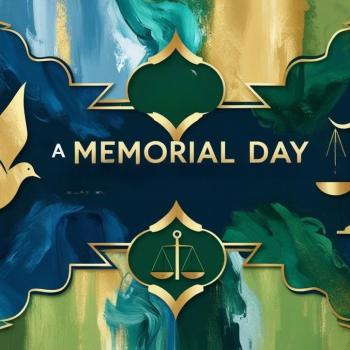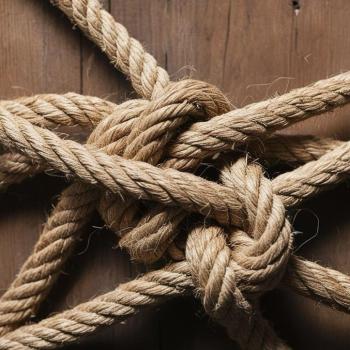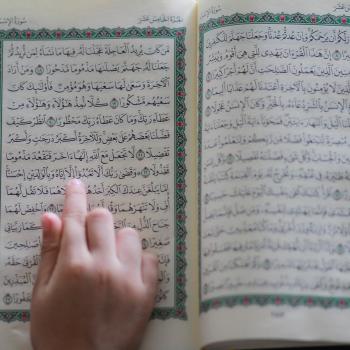By Qasim Rashid
Today in Pakistan at least 132 sets of parents will remember this Jummah as their first Jummah without their precious child. This Jummah they will be forced to remember the crushing weight of small coffins.
I left Peshawar in the 1980s, not long after Dictator Zia implemented death for blasphemy, death for apostasy, and anti-Ahmadi laws. I left as a schoolboy, with wide eyes and an open heart. And when I returned to Pakistan in the mid to late 2000s, I saw a city that no longer exists, a nation that no longer remembers, and a culture I no longer recognize.
They say the smallest coffins are the heaviest. As I wept through pictures and comments, of some 150 dead schoolchildren and countless devastated parents, I realized the Peshawar I once loved no longer exists. As a child I recall a street vendor a few blocks from our apartment—a nice old Pashtun man with a wide smile and charred hands. He sold the best beef kebabs you’d ever tasted and we’d walk to him on our own for the tasty treat. I recall a massive tree with a trunk so large that ten of us children couldn’t wrap our arms around together. When I returned to Peshawar in 2006, the vendor had died, the tree was cut down, and our old apartment building had been demolished. The thought of children roaming unaccompanied in the street had become so dangerous it was laughable. No one cared about a place that no longer existed, but in my memories.
And as I sat numb at Taliban apologists tweeting at me that I was wrong to “push my agenda of condemning the Taliban,” I realized Pakistan is a nation that no longer remembers. Pakistan no longer remembers life before the Taliban, life before terrorism, and life before the brutal persecution of the weak and minorities became mainstream. I remember the story of my cousin who was lynched and murdered through the streets of Peshawar in the 1980s—only because of his faith as an Ahmadi Muslim. While police watched and clerics chanted, my cousin was tied with a noose and dragged nearly naked. They say the Taliban asked children to recite the Kalima (Islamic declaration of faith) before shooting them. I remember my cousin’s final words—as he desperately struggled to remove the noose from his neck—were the words of the Kalima, before his neck snapped. Police did nothing to hold the culprits accountable. And today, just 4 years after the Taliban killed 86 Ahmadi Muslims in Lahore, and a mere 15 months after the Taliban killed 81 Christians in a Peshawar church, Pakistan’s government permitted the Taliban to kill 150 more innocent students. Pakistan has become a nation that doesn’t remember, that doesn’t care.
And so when I see a culture of apathy in Pakistan, where politicians promise change but promote the same unjust laws that fuel extremism. Where clerics promise peace but demand death for blasphemy and apostasy. Where citizens claim to condemn the Taliban but burn Christian and Ahmadi Muslim women and children to death with impunity, I see a culture I no longer recognize. The culture I left still tried to cling to Jinnah’s words, the great Founder of Pakistan who proudly declared, “In any case Pakistan is not going to be a theocratic State to be ruled by priests with a divine mission. We have many non-Muslims — Hindus, Christians, and Parsis — but they are all Pakistanis. They will enjoy the same rights and privileges as any other citizens and will play their rightful part in the affairs of Pakistan.” But Pakistan’s alien culture today is one of might is right, and thus the most dangerous country on Earth.
Nothing will recreate my childhood, or bring back my dead cousin, or revive the hundreds of Christians, Hindus, Ahmadi Muslims, Shias, and schoolchildren lost. But by recognizing the cancer that created Pakistan’s suffering, we can unearth the Pakistan founded on the tenets of justice. We can remind Pakistanis that their nation was a secular democracy. We can establish a new culture where each person has equal human rights.
You see, shortly after enacting death for blasphemy, death for apostasy, and anti-Ahmadi laws, Dictator Zia died himself in a mysterious plane crash. Though dead, his cancerous vision carried forward. To return to its founding glory, Pakistan must kill blasphemy laws, destroy apostasy laws, and repeal anti-Ahmadi laws. Pakistan need not devolve on the dogma of a dead dictator. Rather, Pakistan should feast on the foresight of its Founding Father.
They say the smallest coffins are the heaviest. Pakistan must act now to emerge from the shadow of a dead dictator, lest the weight of even one more small coffin crush the nation forever.
Follow Qasim on Twitter @MuslimIQ












